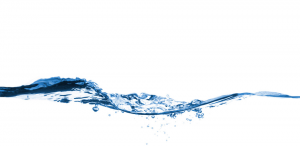The Clear Facts About Alkaline Water
 Here you can learn the basic scientific facts about alkaline water, chelation, pH and more. You’ll also find information about the role of electrolytes and water for improved health and other benefits of using Alka-Pure products as part of a healthier lifestyle.
Here you can learn the basic scientific facts about alkaline water, chelation, pH and more. You’ll also find information about the role of electrolytes and water for improved health and other benefits of using Alka-Pure products as part of a healthier lifestyle.
pH is an abbreviation for “power of hydrogen.” The “p” is short for the German word “potenz”, meaning power, and H is the element symbol for hydrogen. The term pH was first used by Danish biochemist
Søren Peter Lauritz Sørensen in 1909.
What is pH?
pH is a measure of the hydrogen ion concentration of a solution. Solutions with a high concentration of
hydrogen ions have a low pH and solutions with a low concentration of H+ ions have a high pH.
The pH scale ranges from 1 to 14. A value of 7 is neutral (pure water). Less than 7 is acidic and greater than 7 is alkaline (or base). The pH scale is logarithmic, where each pH value is 10 times different than the next.
For example:
pH 6.0 is 10x more acidic than neutral (7.0), and
pH 5.0 is 100x more acidic.
Likewise, on the other side of the scale:
pH 9.0 is 100x more alkaline than neutral (7.0), and
pH 10.0 is 1000x more alkaline.
At the extreme ends of the spectrum are battery acid at 0 and lye close to 14.
What is Alkaline Water?
Pure water is neutral with a pH ranking of 7.0, neither an acid nor a base. It is the reference point for acids
and bases.
Although the pH of pure water is 7 (neutral), most drinking water and natural water exhibits a variation in pH range because it contains dissolved minerals, gasses and municipal additives such as chlorine and flouride.
Water with a pH less than 7 is considered acidic.
Water with a pH higher than 7 is considered basic, or alkaline.
What is Reverse Osmosis?
The Reverse Osmosis process that Alka-Pure uses requires water under pressure to move through a series of semi permeable filters to remove bacteria, microbes, minerals, and other suspended particulates. Reverse Osmosis is very good at removing both organic and inorganic chemicals.
According to The Center for Disease Control (CDC), water can contain over 50 organic substances, including: acrylamide, benzene, toluene, and fuels. It can also contain more than 15 inorganic substances such as: metals and non-metals, and substances like arsenic, cyanide, lead, nitrates and nitrites.
Chemicals leach into all water sources and Reverse Osmosis helps remove more contaminants than
other treatments.
Alka Pure uses Reverse Osmosis water in both our Go Paks and bottled water.
What is Chelation?
The proprietary Alka Pure Alkaline Concentrate in our Go Paks and bottled water delivers five essential minerals in pre-chelated form for efficient absorption and use by the body.
In simple terms, the word chelate (pronounced key-leyt) derives from the Greek word “chel,” meaning a crab’s claw, and was named by scientists Morgan and Drew in 1920. It refers to the pincer-like manner in which a compound is formed between a mineral and a protein resulting in a ring-like formation.
Chelation is a natural process. The body can naturally chelate minerals inside the stomach and intestine. However, as our bodies age, our natural chelation process slows down and is less efficient. This naturally occurring decline, coupled with our highly acidic Western diet, makes the body’s natural chelating process even less effective.
How Does Chelation Help My Body Absorb and Use More Minerals?
A chelated mineral that can be utilized by the body is one that has been bonded to two or more amino acids from hydrolyzed protein. A mineral in this chelated state allows easy passage through the intestinal wall into the blood stream, which results in increased metabolism of that mineral. In other words, when a piece of “rock” (for example calcium) is grabbed by an amino acid (such as those found in the proteins you eat), the combined particle (“rock” + amino acid) is perceived as food by the body. A piece of “rock”, by itself, is NOT food. Your intestines are designed to allow FOOD to pass through, but not “rocks”.
What Are Electrolytes?
Electrolytes are minerals in your blood and other body fluids that carry an electric charge.
Electrolytes are critical to every function in the body. They play key roles in keeping water balanced both inside and outside of cells so muscles and organs continue to work properly.
Scientifically speaking, electrolytes are positively and negatively charged particles (ions) that are formed when mineral or other salts dissolve and separate in water.
Why Are Electrolytes Important for my Body?
Human life cannot exist without electrolytes. They are substances which contain free ions that conduct the electricity needed to perform functions such as:
• Regulating nerve and muscle function
• Regulating hydration
• Rebuilding damaged tissue
• Regulating blood pH
• Regulating blood pressure
• Brain activity
• Transmitting nerve impulses
• Proper gland function
• Temperature control and MUCH more
Muscles and neurons are “electrical tissues” of the body that are activated by electrolyte activity in
three ways:
• Outside cells (extracellular)
• Inside cells (intracellular)
• Between cells (interstitial)
For example, heart, muscle and nerve cells use electrolytes to maintain voltage across cell membranes and carry electrical impulses to other cells.
How Can I Keep My Electrolyte Concentration More Constant?
To keep the electrolyte concentrations in our body constant, we must replenish them by eating a healthy diet that includes an abundance of fresh fruits and vegetables. Many people do not follow an ideal, healthy diet and Alka Pure Concentrate, when added to your own water (and other beverages) or in our bottled water can help keep electrolytes in balance while hydrating the body.
Our proprietary Alka Pure Concentrate formula contains the five most common electrolyte minerals in the
human body:
• Potassium
• Sodium
• Calcium
• Magnesium
• Phosphorus
What Are Some of the Causes of Electrolyte Imbalance?
Electrolyte imbalance can be caused by a number of factors, including:
• Kidney Disease
• Prolonged Vomiting
• Severe Dehydration
• Heatwaves
• pH Imbalance
• Congestive Heart Failure
• Cancer Treatment
• Some Drugs Such as Diuretics or ACE Inhibitors (many patients taking diuretics for high blood pressure/
heart conditions have reduced sodium and potassium levels)
• Bulimia
• Severe/Persistent Vomiting and Nausea During Pregnancy
How Do Electrolytes Help with Exercise & Physically Active Jobs?
Body fluids are primarily water and electrolytes. When we sweat, we dehydrate and lose both water and electrolytes – mostly sodium and potassium. Even minimal dehydration (1% of body weight) can increase cardiovascular strain and limit the ability of the body to transfer heat from contracting muscles to the skin surface for dissipation to the environment.
Muscles need Calcium, Sodium and Potassium to contract. When electrolyte levels are off, muscles can become weak (or contract too severely). Dehydration and electrolyte imbalances can adversely impact health and exercise performance.
Drinking electrolyte mineral-infused water is a much healthier way to give the body what it needs, rather than reaching for a high sugar or artificially sweetened/flavored/colored “sports” or “energy” drink. This is true both during and after exercising – and as a general rule.
